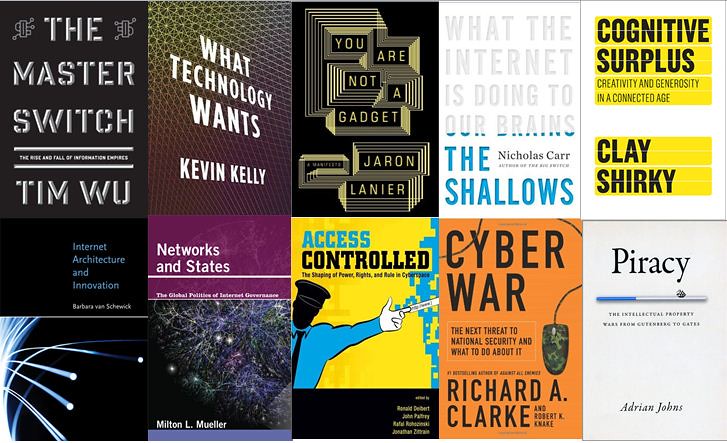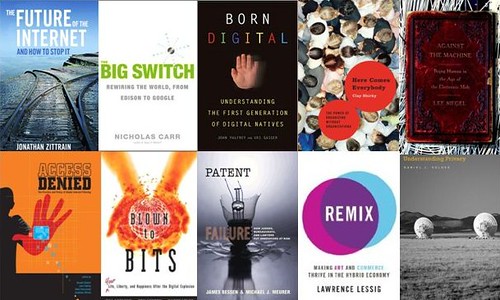
Como en años anteriores (Los mejores libros del 2008 y Los mejores libros del 2009) reproducimos la selección que Adam Thierer publica en The Techonology Liberation Front (The 10 Most Important Info-Tech Policy Books of 2010) sobre las mejores entregas de política tecnológica publicados este año. El autor considera que tanto por el número de títulos como por la importancia de de los mismos, el 2010 fue uno de los mejores años (sólo comparable al 2006 o 2008).
Lamentablemente si en la entrega del 2008 existieron tres títulos disponibles en línea y sólo uno el 2009, para seguir la tendencia, este año no he podido encontrar ninguno. Es evidente que me refiero a la publicación del libro por parte del editor o autor, los más avispados siempre podrán conseguir alguna copia no autorizada. Reproducimos la lista:
(1) Tim Wu – The Master Switch: The Rise and Fall of Information Empires.
(2) Kevin Kelly – What Technology Wants.
(3) Jaron Lanier – You Are Not a Gadget: A Manifesto.
(4) Nicholas Carr – The Shallows: What the Internet is Doing to Our Brains.
(5) Clay Shirky – Cognitive Surplus: Creativity and Generosity in a Connected Age.
(6) Barbara van Schewick – Internet Architecture and Innovation.
(7) Milton Mueller — Networks and States: The Global Politics of Internet Governance.
(8) Ronald J. Deibert, John G. Palfrey, Rafal Rohozinski, y Jonathan Zittrain (Eds.) – Access Controlled: The Shaping of Power, Rights, and Rule in Cyberspace
(9) Richard A. Clarke y Robert K. Knake – Cyber War: The Next Threat to National Security and What to Do About It.
(10) Adrian Johns – Piracy: The Intellectual Property Wars from Gutenberg to Gates.
Menciones Honoríficas:
(-) Rob Frieden – Winning the Silicon Sweepstakes: Can the United States Compete in Global Telecommunications?
(-) Daniel Lathrop y Laurel Ruma (Eds.) – Open Government: Collaboration, Transparency, and Participation in Practice.
(-) William Powers – Hamlet’s BlackBerry: A Practical Philosophy for Building a Good Life in the Digital Age.
(-) Robert W. McChesney y John Nichols – The Death and Life of American Journalism.
(-) Nick Bilton – I Live in the Future & Here’s How It Works.
(-) Lee Bollinger – Uninhibited, Robust, and Wide-open: A Free Press for a New Century.
